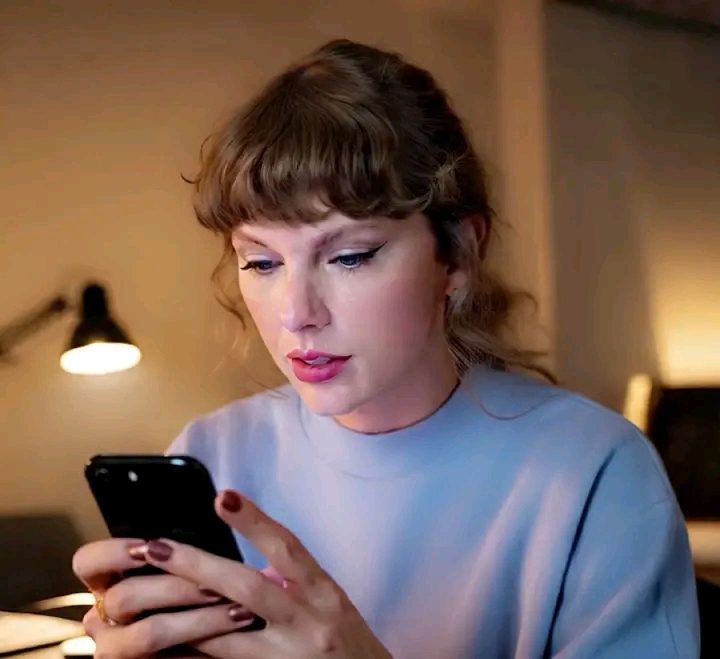CELEBRITY
Just Now:Taylor Swift Posts Cryptic Message shortly after Sean Diddy Combs Trial Outcome: ‘Women Are Not Believed, Sorry to All the Women Out There’

Taylor Swift’s Cryptic Post After Diddy’s Trial Verdict Sparks Conversation on Women’s Credibility In a surprising move that has ignited widespread discussion, pop superstar Taylor Swift took to social media to share a cryptic yet poignant message following the high-profile trial of Sean “Diddy” Combs, who was found guilty on two of five charges related to prostitution but acquitted of the more serious sex trafficking and racketeering charges on July 2, 2025. Swift’s statement, which included the lines “women are not believed” and “sorry to the women out there,” has been interpreted as a pointed critique of the judicial outcome and a broader commentary on societal treatment of women’s allegations of abuse.
The trial, which captivated public attention for eight weeks, centered on allegations that Combs used his influence as a music mogul to exploit and coerce women into sexual acts, including so-called “freak-offs,” with prosecutors portraying him as a manipulative figure wielding power through violence, fear, and drugs. Key testimony came from Combs’ ex-girlfriend, Cassie Ventura, who described enduring years of physical and emotional abuse, including being coerced into recorded sexual encounters. Despite the gravity of these claims, the jury’s mixed verdict—convicting Combs only on two counts of transportation to engage in prostitution—has left many, including Swift, questioning the justice system’s handling of such cases.
Swift’s message, posted shortly after the verdict was announced, appears to reflect her frustration with the outcome, particularly the acquittal on the sex trafficking and racketeering charges, which could have carried a life sentence. Her words, “women are not believed,” echo a recurring theme in her advocacy for survivors of abuse, a cause she has championed both publicly and through her music. The phrase “sorry to the women out there” suggests an apology not only for the trial’s outcome but also for the broader systemic challenges women face when coming forward with allegations against powerful figures. The statement has resonated deeply with fans and advocates, sparking a wave of support on platforms like X, where users praised Swift for using her platform to highlight issues of gender-based injustice.
The trial itself was a lightning rod for debates about fame, power, and accountability in the #MeToo era. Prosecutors argued that Combs ran a “criminal enterprise” that leveraged his wealth and industry clout to trap young women, pointing to testimony, texts, bank records, and audio evidence. However, the defense countered that Combs’ actions, particularly with Ventura, amounted to domestic violence rather than trafficking, a claim that may have influenced the jury’s decision to acquit on the more severe charges. The partial verdict has been described by legal experts as a “major win” for Combs, who now faces up to 10 years in prison for the prostitution-related convictions rather than a life sentence.
Swift’s decision to speak out aligns with her history of addressing issues of gender and power dynamics. In 2017, she successfully sued a radio DJ for groping her, later speaking about the experience to encourage other survivors to come forward. Her 2020 documentary, Miss Americana, further explored her journey toward using her voice for advocacy, including her stance against powerful men who abuse their influence. By commenting on the Diddy trial, Swift appears to be drawing a line between her own experiences and the broader struggle of women whose allegations are dismissed or downplayed, particularly when the accused holds significant societal power.
The public reaction to Swift’s statement has been polarized. Supporters argue that her message amplifies the voices of survivors, pointing to the trial’s outcome as evidence of a justice system that often fails to hold powerful men accountable. Critics, however, have questioned whether Swift’s comment oversimplifies the case, noting that the jury’s deliberations were complex, with disagreements over the racketeering charge and challenges in proving specific predicate acts. Some online commentators, including voices in the so-called “manosphere,” have pushed back against the narrative, claiming that allegations against Combs were exaggerated or motivated by personal gain. This backlash, coupled with AI-generated misinformation surrounding the trial, has further complicated the public discourse.
Swift’s statement also arrives at a time when the #MeToo movement faces new challenges, including skepticism and misinformation amplified by social media. The Diddy trial, described as a test of the movement’s limits, highlighted how fame and wealth can obscure accountability, with some arguing that Combs’ acquittal on major charges reflects a broader reluctance to believe women’s accounts of abuse. Swift’s words, though brief, seem to address this tension, expressing solidarity with women who feel silenced or dismissed.
As Combs awaits sentencing, which could see him imprisoned for up to a decade, the conversation around the trial—and Swift’s response—continues to unfold. Her cryptic post has not only drawn attention to the specific case but also reignited discussions about systemic issues in how allegations of abuse are handled. For Swift, whose influence spans music and culture, the statement is a reminder of her willingness to speak out on issues that matter to her, even at the risk of controversy. Whether her words will inspire further action or simply fuel online debate remains to be seen, but they have undeniably struck a chord in a moment of reckoning for justice and accountability.











